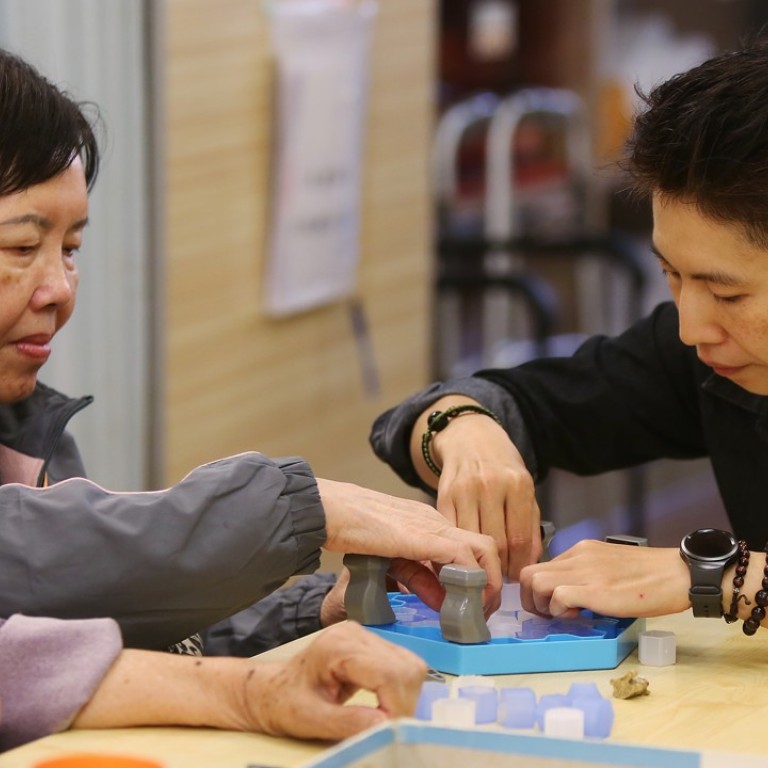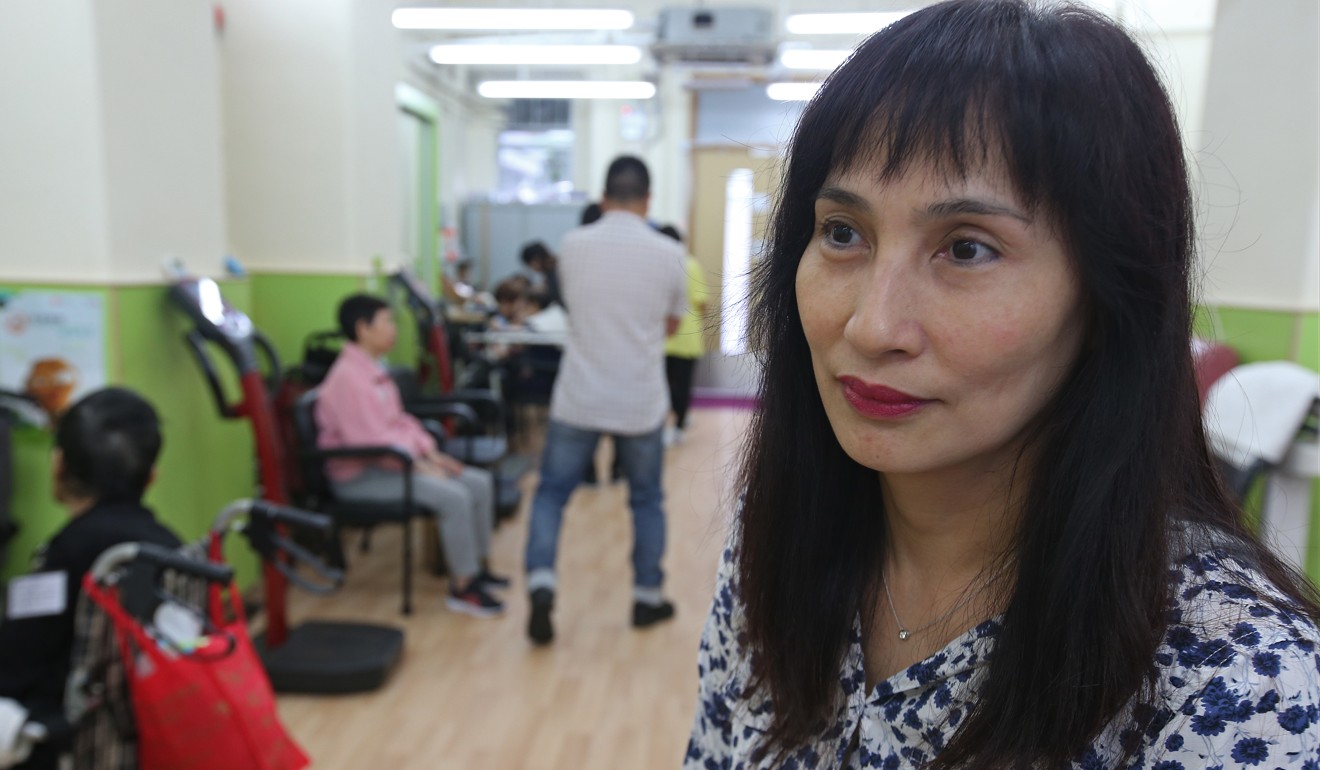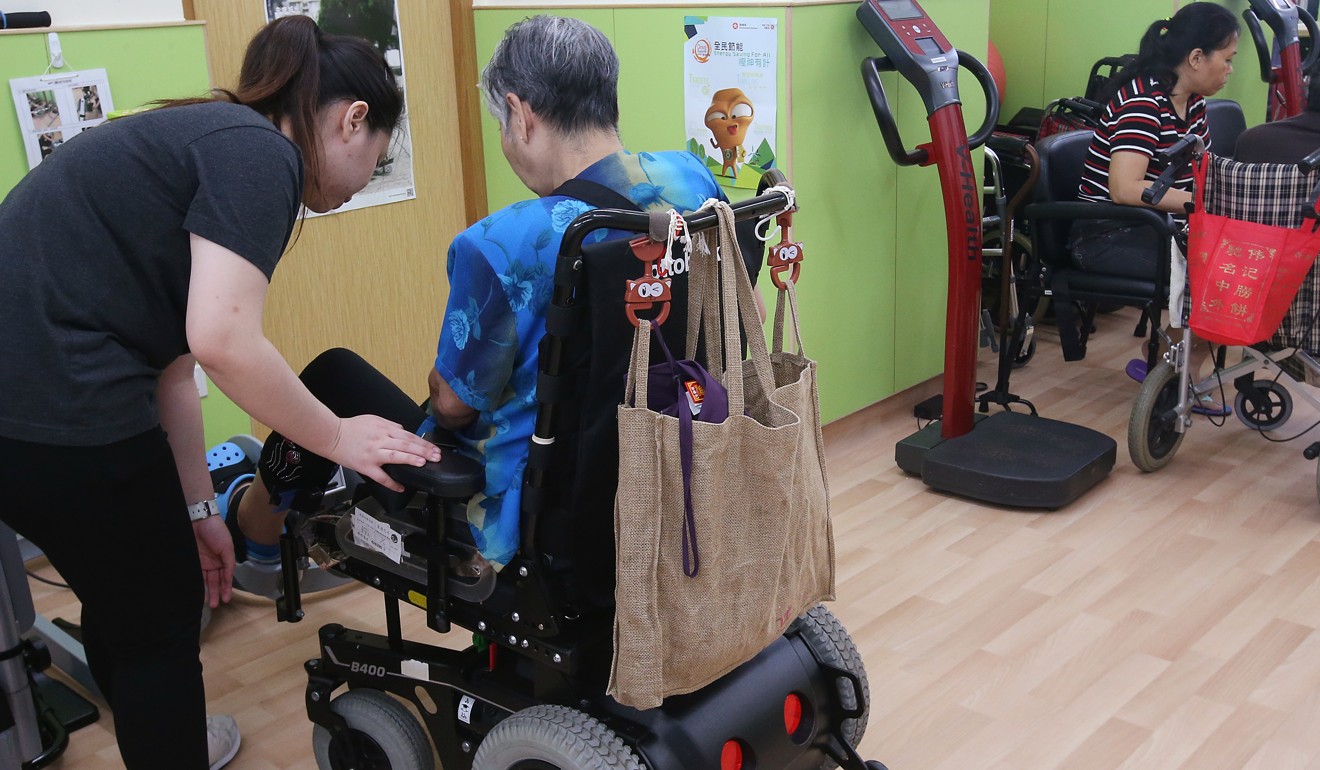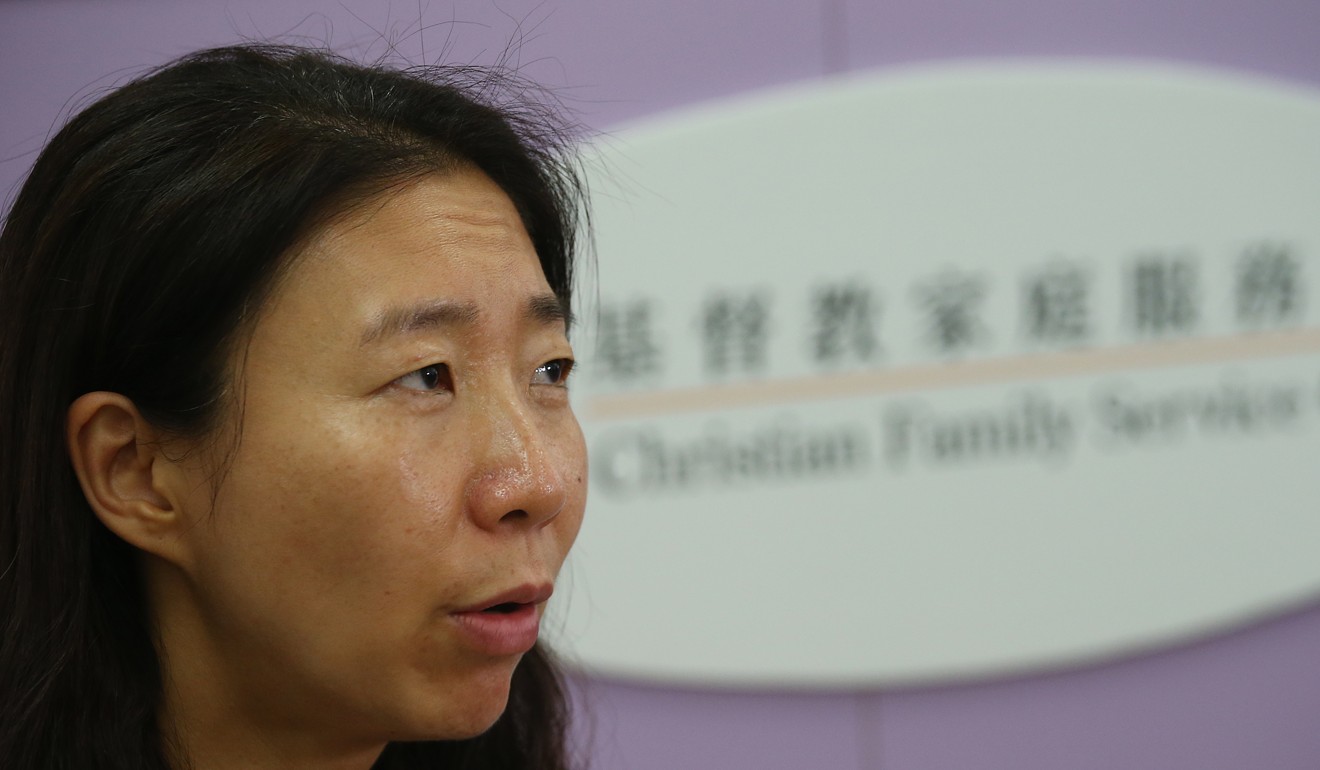
Ignored, overburdened and at risk of burnout – what can be done for Hong Kong’s carers?
Besides financial aid, the spouses and adult children looking after the city’s growing elderly population full-time need a better support network
Chang King-ho has been racing against time since her elderly mother was diagnosed with dementia a few years ago.
She shops for groceries in haste, occasionally checking the home security camera feed on her mobile phone, and does not spend any time more than she needs to in the bathroom.
When her workplace was in Hung Hom, she rode a motorcycle so commuting from her Kwun Tong home would take the shortest possible time.
Could Singapore’s ‘ageing in place’ experiment be a model for Hong Kong?
Chang, who is unmarried and no longer working, has also cut back on her social life.
She is among tens of thousands of carers in Hong Kong, mainly adult children and elderly spouses, who have devoted themselves to being primary helpers of the chronically ill among the city’s growing elderly population.
Recent tragedies have cast the spotlight on these full-time carers, whose strong sense of love and duty often forces them to mask their own need for support, which can lead to burnout.
In October, a 34-year-old man with mental issues was accused of murdering his bedridden mother before attempting suicide by jumping out of his 16th-floor flat. Earlier this year, an 80-year-old man allegedly strangled his chronically ill and disabled wife.
A study involving 27 dementia carers and published in the Hong Kong College of Psychiatrists’ publication East Asian Archives of Psychiatry in 2010 found that seven out of 10 faced psychological distress and felt negative emotions such as grief, sadness, anxiety, anger, guilt, blame, fear and embarrassment.
The burden of carers is often ignored
The study also found that close to four in 10 of the carers indicated problems with their social life, close to three in 10 said they had problems in relationships with other family members and more than one in seven faced job issues as they were no longer able to take on regular work.
“The burden of carers is often ignored,” Chang told the Post. “I once fell apart too.”
Chang quit her job to stay at home full-time when her mother’s condition deteriorated. But this took a toll on her mental health – she became more stressed out and eventually suffered a relapse of her anxiety disorder.
Full-time carers get no “real” rest time, she said.
“Foreign domestic helpers could at least have a day off per week – but we don’t.
“I once thought I would finally have some time to relax when my mother goes to sleep every night, but I was wrong, as she would still wake me up and ask me questions at midnight.”
Tackling Hong Kong’s “silver tsunami”
The need for geriatric care is only going to grow in Hong Kong, as it has in the rest of the developed world, given the city’s expected “silver tsunami”, with the population of those aged 65 and above projected to surge by some 97 per cent to reach 2.3 million in 2034.
Old folk will then form a third of the city’s population, with those aged 80 or above making up one-twelfth of residents.
Hong Kong currently has one of the highest proportions – 6.8 per cent – of people aged 65 or above living in nursing homes, and even as it builds more facilities, the government is determined to promote “ageing in place” as it will give seniors a better quality of life.
But this policy initiative means little to Chang, who lamented: “The fact is we are indeed living at home, but we seem to be waiting to die. We are both exhausted.”

The government has issued 6,000 community care service vouchers – for sums ranging from HK$3,000 to HK$7,000 – that recipients can use for subsidised home or day care services. But there is currently an 11-month wait for such services.
In her maiden policy address last month, Chief Executive Carrie Lam Cheng Yuet-ngor pledged to set a zero waiting time target for community care services for the elderly. Her administration is also looking to increase the number of community day care centres.
Poverty in Hong Kong hits record high, with 1 in 5 people considered poor
Social welfare authorities are also seriously considering giving elderly people subsidies to hire domestic helpers as carers.
Currently, about 2,000 carers of low-income seniors get a monthly allowance of HK$2,000 under a two-year pilot scheme run by the Community Care Fund.
But social workers say that while financial resources are crucial, carers – a linchpin of successful ageing – need better support networks.
Caring for the carers
Once, on the verge of an emotional breakdown, Chang asked the Social Welfare Department for help. But she said its response was “not helpful”.
It was only when she came across training sessions for dementia patients offered by the Christian Family Service Centre that she finally had a break from her caregiving duties for at least six hours a week.
But Kriss Lo, who quit her job some 15 years ago to be a full-time carer for her parents, both approaching the age of 90, has not been so lucky.
Unlike Chang’s mother, Lo’s parents are reluctant to visit elderly-care centres and receive community care services.
Study shows video games could cut elderly dementia risk by almost 30 per cent, but sceptics say it’s ‘implausible’
Lo said it would be helpful if she could get the HK$2,000 allowance. But neither she nor Chang were able to join the scheme, given its limited quota of recipients.
To Lo, the government’s promise of help for the ageing population is “purely theoretical”.
“The support offered is insufficient. We carers also have our own families. Who will step in and help [when we are not around]?”
Tong Choi-ying, programme director of elderly care at the Christian Family Service Centre, criticised the government for failing the city’s carers. In particular, more should be done to offer community care respite services, where staff from care centres could go to seniors’ homes if their carers needed help, she said.

Tong also took up the issue of subsidies for caregivers, which she said should not be limited to the poor but also to middle-class Hongkongers who quit their jobs to be full-time carers.
In an earlier interview with the Post, Secretary for Labour and Welfare Dr Law Chi-kwong said the administration would evaluate different pilot schemes to produce a “reasonable” package of community care services for the elderly.
He had also tasked the Social Welfare Department to work with the Hong Kong Council of Social Service – an umbrella group for the city’s non-government social service providers – to explore how best to help “at-risk” seniors. These are individuals who need welfare services but are not yet on the radar of social workers. Some also have carers who need support.
International researchers seek Hong Kong participants for major study to help fight dementia
The Post understands that one of the council’s ideas is for government departments to have better coordination and communication.
For instance, the Hospital Authority should refer recently discharged patients, with their consent, to community care centres.
Similarly, the Housing Authority should give social service centres a heads-up when tenants fail to pay rent or if complaints are received from tenants about their neighbour’s hygiene. Both examples are signs of “at-risk” elderly.

But Labour Party lawmaker Dr Fernando Cheung Chiu-hung believed only a comprehensive case-management system would plug the loopholes – something social workers had sought for years and which countries such as Japan have.
A case manager could assess the needs of individual seniors on a continuous basis and line up the services that they needed the most, he said.
The 2010 study on dementia carers drew a similar conclusion – respondents had asked for a “one-stop” service and a “resource person” who could make referrals to appropriate agencies and offer information and advice.
China yet to exploit potential market for care facilities for its rapidly ageing population
Law said such a system was on the government’s agenda. But he did not specify a time frame for its implementation.
As she spoke with the Post, Chang expressed a strong wish to re-enter the job market if she could afford to hire help.
She used to be a manager of a jewellery firm on the mainland, and once resorted to taking a job at a McDonald’s outlet near her home so she could get back to her mother more easily. But even that did not last.
However, the plan to subsidise the cost of hiring a domestic worker for old people, if implemented, is likely to be limited to those living alone, at least in the first phase of the scheme.
Hong Kong charity’s home-based services help elderly and disabled take care of themselves
“It would be a win-win situation [to have a domestic helper] as I would also be given a chance to make a contribution to society,” Chang said.
Tong highlighted the sacrifice that full-time carers made, not only in quitting work and losing their income but also sacrificing their social networks, medical insurance and Mandatory Provident Fund savings – a compulsory retirement savings scheme for Hong Kong workers.
Chang, who used to work for a jewellery company on the mainland, agreed.
“The jewellery business requires good eyesight. It opts for younger candidates instead of me,” she said with a sigh.
“What can I do if I re-enter the market when I get old?”

